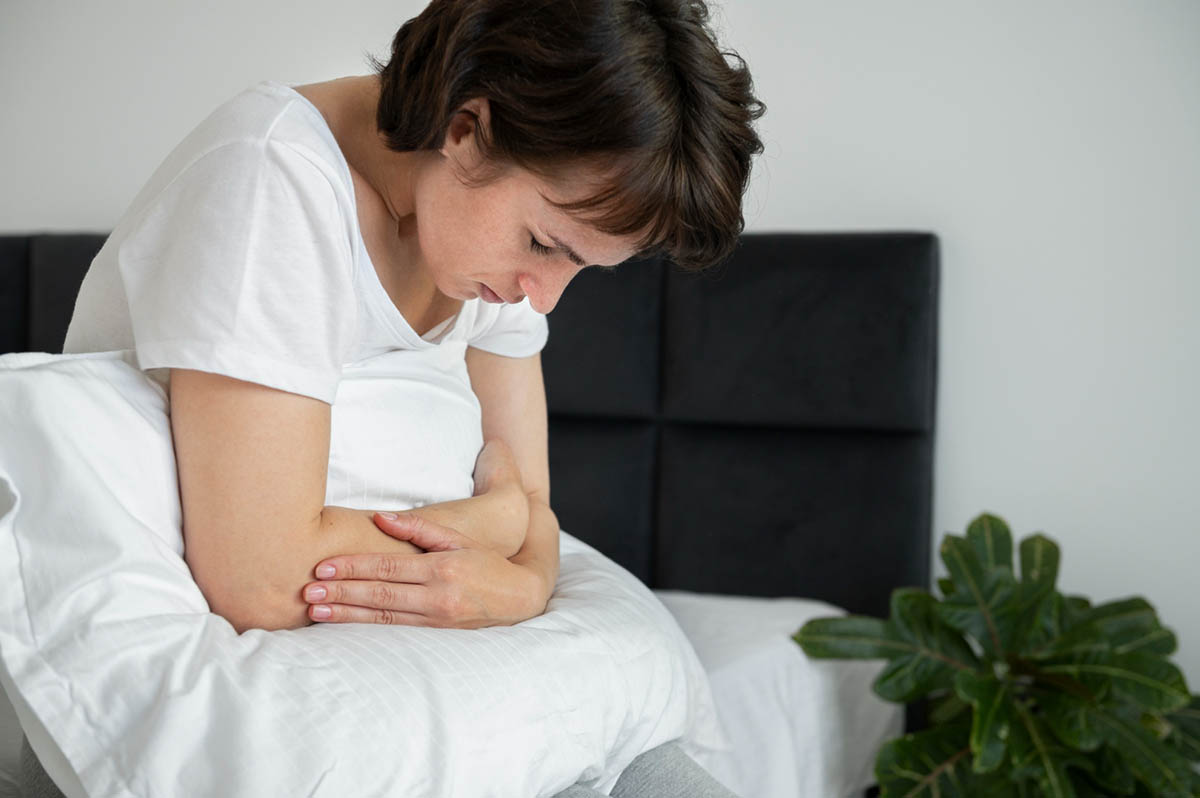Bringing a new life into the world is a beautiful yet complex experience that significantly impacts a woman’s body. Among the changes that many women face after childbirth are irregular periods, which can be confusing and worrisome. It’s common to wonder, “Is it normal to have irregular periods after birth?” The answer is yes, and this blog will help you understand why irregular periods after birth occur, what you can expect in terms of menstrual cycle recovery, and how you can manage any discomfort or irregularities in your menstrual bleeding.
What Causes Irregular Periods After Birth?
After childbirth, your body goes through a recovery process, and it takes time for your menstrual cycle to return to its regular rhythm. Hormonal changes play a pivotal role in this process. During pregnancy, levels of estrogen and progesterone are elevated, and after birth, they drop rapidly. This drop in levels of hormones is the main reason why periods after pregnancy are often irregular.
Irregular menstruation can serve as an important indicator of a woman’s overall health. Studies show that the prevalence of irregular menstruation can vary between 5% to 35.6%, depending on factors such as age, occupation, and geographic location. Hormonal fluctuations, along with lifestyle factors like stress and weight changes, also contribute to irregularities in the menstrual cycle post-birth
Other factors that can influence irregular menstruation include stress, lack of sleep, and extreme changes in weight. For example, sudden weight loss or extreme weight loss postpartum can delay the return of your cycle. Additionally, health issues such as polycystic ovary syndrome (PCOS), uterine tissue problems, and inflammation can also contribute to menstrual irregularities. If you had a vaginal birth, you might experience different recovery patterns compared to women who had c-section deliveries. The choice of birth control you make after childbirth can also affect when your period returns.
In particular, breastfeeding plays a significant role in irregular bleeding. The hormone prolactin, which is responsible for production of breast milk, can suppress ovulation, leading to absent periods or irregular cycles. This means that while you are breastfeeding, you may not have a consistent cycle or you may not ovulate at all.
How Long Can You Expect Irregular Periods After Birth?

It’s normal to experience irregularities in your cycle after birth, but how long will this last? Many factors come into play, such as whether you are breastfeeding or formula feeding, and your overall health. The timing of your period’s return also varies depending on the frequency of breastfeeding and your body’s unique hormonal adjustments.
It is estimated that 14% to 25% of women of reproductive age experience menstrual irregularities, highlighting how common this issue can be during childbearing years. For many women, are periods irregular after birth? Yes, especially in the early months postpartum. Whether you are breastfeeding or not, it is common to experience irregularities in your cycle as your body readjusts after childbirth.
If You’re Not Breastfeeding:
For women who are not breastfeeding, menstrual periods may return as early as six to eight weeks postpartum. However, even after your actual period returns, don’t expect it to be immediately regular. Irregular periods after birth are common, and it can take several months after birth for your cycle to stabilize. You may notice a lighter period, longer or shorter days between periods, or changes in color of period blood as your body readjusts.
For many women, are periods irregular after birth? Yes, especially in the early months postpartum. Whether you are breastfeeding or not, it is common to experience irregularities in your cycle as your body readjusts after childbirth.
If You Are Breastfeeding:
For breastfeeding mothers, the return of menstrual periods might take longer. Many women experience lactational amenorrhea, where milk production suppresses ovulation, and this can delay your period after pregnancy for several months postpartum. Some women won’t experience a period until they start formula feeding or when their baby begins eating solid food, reducing their dependency on breast milk.
However, even when your cycle does return, you may still experience irregular bleeding or longer intervals between periods for some time. The body needs time to adjust the balance of hormones, and as a result, the cycle post-birth may remain inconsistent.
Breastfeeding mothers are particularly prone to having irregular menstrual cycles, as lactation significantly impacts the body’s hormonal balance. The hormone prolactin, which stimulates milk production, often delays the return of regular ovulation and menstruation, making irregular periods even more common among breastfeeding women.
Tips for Managing Irregular Periods After Birth
Managing irregular periods after birth can be challenging, especially if you’re dealing with painful periods, heavy periods, or intense cramps. Here are some tips to help you manage this phase more effectively:
- Track Your Cycle: Keeping a record of your menstrual cycle can help you detect patterns and predict when your period is likely to return. It’s normal for the cycle to be irregular, but tracking can give you peace of mind.
- Maintain a Healthy Lifestyle: Eating nutritious foods, staying hydrated, and exercising moderately can help regulate your hormones. Avoid sudden weight loss, as this can further disrupt your cycle.
- Use Hormonal Birth Control: Certain forms of hormonal birth control can help regulate your irregular period cycle. Options like birth control pills or an IUD might be recommended by your doctor if you’re looking for more regularity. However, discuss the best methods of contraception for your situation with your healthcare provider.
- Manage Period Pain: Over-the-counter medications like a counter pain reliever can help alleviate cramps in periods and period pain. Be mindful of any abnormal symptoms such as blood clots larger than a quarter, as this could indicate a more serious issue.
- Get Adequate Rest: Stress and lack of sleep can exacerbate menstrual irregularities. Prioritize rest and self-care as much as possible during this busy postpartum time.
Can You Get Pregnant with Irregular Periods After Birth?
Yes, it is possible to get pregnant even with irregular periods after birth. One common misconception is that you can’t conceive unless your periods have returned to normal. However, ovulation can occur before your first postpartum period, which means you can become pregnant without having a regular cycle.
If you’re not ready for another pregnancy, consider discussing birth control methods with your healthcare provider. They can help you choose the best form of birth control to suit your needs and ensure it doesn’t interfere with breast milk production if you’re breastfeeding.
When to Seek Medical Advice for Irregular Periods

Although irregular periods after birth are often normal, certain signs should prompt you to consult a doctor. If you experience any of the following, it could be a sign of an underlying medical condition:
- Heavy periods that last more than seven days or require you to change your pad or tampon every hour.
- Severe period pain or intense cramps that are not relieved by over-the-counter medication.
- Foul-smelling vaginal discharge, as this could indicate an infection.
- Bleeding between periods, especially if it’s heavy or accompanied by clots in period blood.
- Sudden weight loss or extreme fatigue could signal thyroid problems or other health conditions.
If you’re unsure whether your symptoms are normal, consult your healthcare provider or visit a women’s health or sexual health clinic. Early detection and treatment of any health issues can prevent complications such as ovarian cysts or ovarian cancer.
Conclusion
It’s completely normal for periods after delivery to be irregular, whether you’re breastfeeding or not. Hormonal fluctuations, recovery from childbirth, and individual health factors all play a part in when your cycle after delivery returns. With time, self-care, and patience, your body will eventually regulate itself.
If you’re ever in doubt or experiencing discomfort, don’t hesitate to reach out to a healthcare provider. By staying informed and taking care of your body, you’ll be better equipped to handle the ups and downs of your menstrual cycle post-childbirth.
At Vitality Functional Family Medicine, we understand the challenges women face with irregular periods after birth. Our approach to functional medicine in Tulsa is rooted in addressing underlying hormonal imbalances, offering customized treatment plans that restore health and well-being. With a focus on women’s health, we aim to support you through every stage of your journey, ensuring comprehensive care for both your body and mind. Ready to take control of your health? Contact us today to start your personalized wellness journey.
FAQ’s
Why is my period on and off after birth?
Your period after pregnancy can be irregular due to hormonal changes, especially with the levels of estrogen and progesterone still fluctuating. If you’re breastfeeding, prolactin—the hormone responsible for milk production—can further delay your cycle, causing it to be on and off.
When will I get my period back after birth?
This depends on whether or not you’re breastfeeding. If you’re not breastfeeding, your menstrual flow may return weeks postpartum, typically between 6-8 weeks. If you’re breastfeeding, it might take several months postpartum for your period to return, or even longer depending on how frequently you nurse.
Is it normal to have an irregular period after having a baby?
Yes, can periods be irregular after birth? Absolutely. Many women experience irregular bleeding or unpredictable cycles post-birth due to the combination of hormones involved in recovery. This is a natural part of the postpartum journey, but if you have concerns, always consult a healthcare professional.

